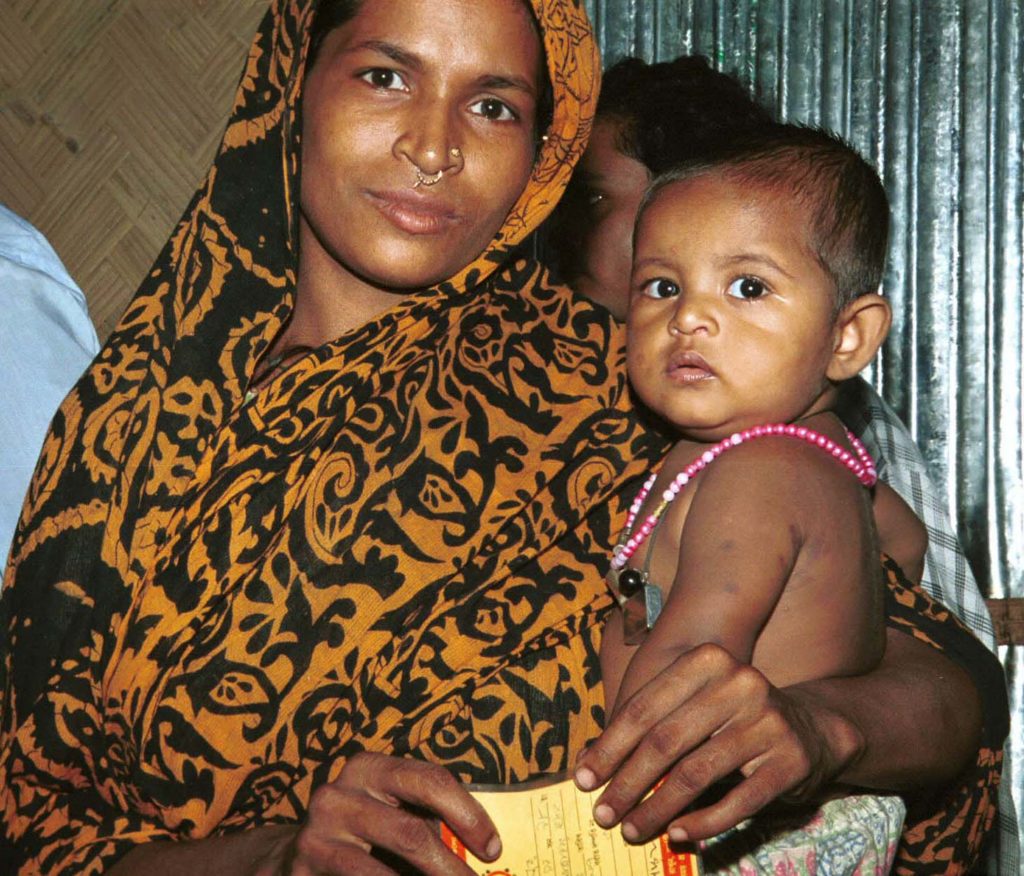Healthy Women, Healthy Families (Shustha Ma, Shustha Poribar)
Healthy Women, Healthy Families (Shustha Ma, Shustha Poribar)

Overview
Between 2021 and 2025, the Healthy Women, Healthy Families (HWHF) project—locally known as Shustha Ma, Shustha Poribar—was dedicated to enhancing maternal and child health in underserved urban areas surrounding Dhaka, Bangladesh. In collaboration with partners BRAC, SCOPE, and the Population Council, MSH implemented innovative, community-centered approaches to address the unique challenges faced by first-time parents in these communities.
Key Achievements
Between 2021 and 2025, HWHF made significant strides in improving health outcomes:
- Group Antenatal and Postnatal Care (GANC/PNC): More than 6,100 first-time mothers participated in group sessions that combined clinical care with peer support, leading to increased knowledge and confidence in managing their health and that of their infants.
- Fatherhood Engagement: The program recorded over 5,300 instances of male participation in group sessions. Some men attended multiple sessions, reinforcing their role as supportive partners in maternal and newborn health.
- Enhanced Antenatal Care Attendance: Nearly 75% of women attended four or more antenatal visits, surpassing the national average of 55%.
- Facility-Based Deliveries: Around 80% of participants delivered at health facilities, higher than the national urban average of 76%.
- Exclusive Breastfeeding Rates: More than 63% of mothers exclusively breastfed their babies for up to six months thanks to their group PNC sessions, compared to 55% in control groups.
The success of this model underscores the importance of human-centered design and the effectiveness of integrating clinical services with community engagement. As the project concluded, efforts were under way to collaborate with government entities to scale and integrate these approaches into public health systems across Bangladesh, ensuring lasting impact and sustainability.
Building a Healthier Tomorrow in Bangladesh: The Legacy of the Healthy Women, Healthy Families Project
The Healthy Women, Healthy Families project showcases the impactful group-based antenatal and postnatal care model supporting first-time parents in Bangladesh. This resource highlights how this human-centered approach improves maternal health through education, clinical care, and community involvement. Learn more about the project’s approach and the success stories of mothers and fathers who participated in this innovative model.
Empowering First-Time Parents in Bangladesh: A Journey Through Group Care
By integrating clinical check-ups with peer learning and social support, this project in Bangladesh led to more women attending antenatal check-ups, higher facility-based delivery rates, increased knowledge of maternal and newborn health, and greater involvement of fathers.
Donors & Partners
Donors
Margaret A. Cargill Philanthropies
Partners
BRAC
Scope
Population Council